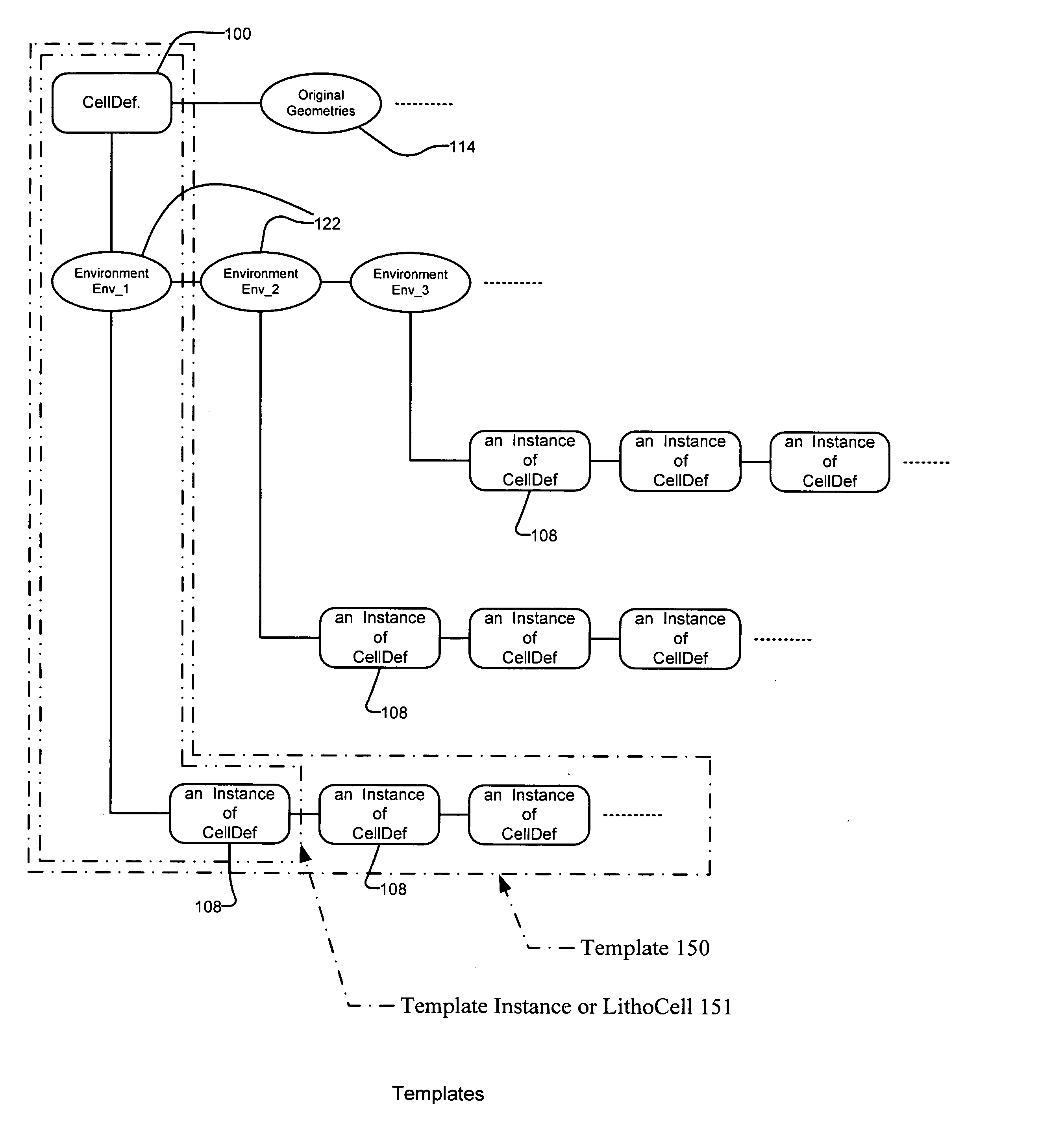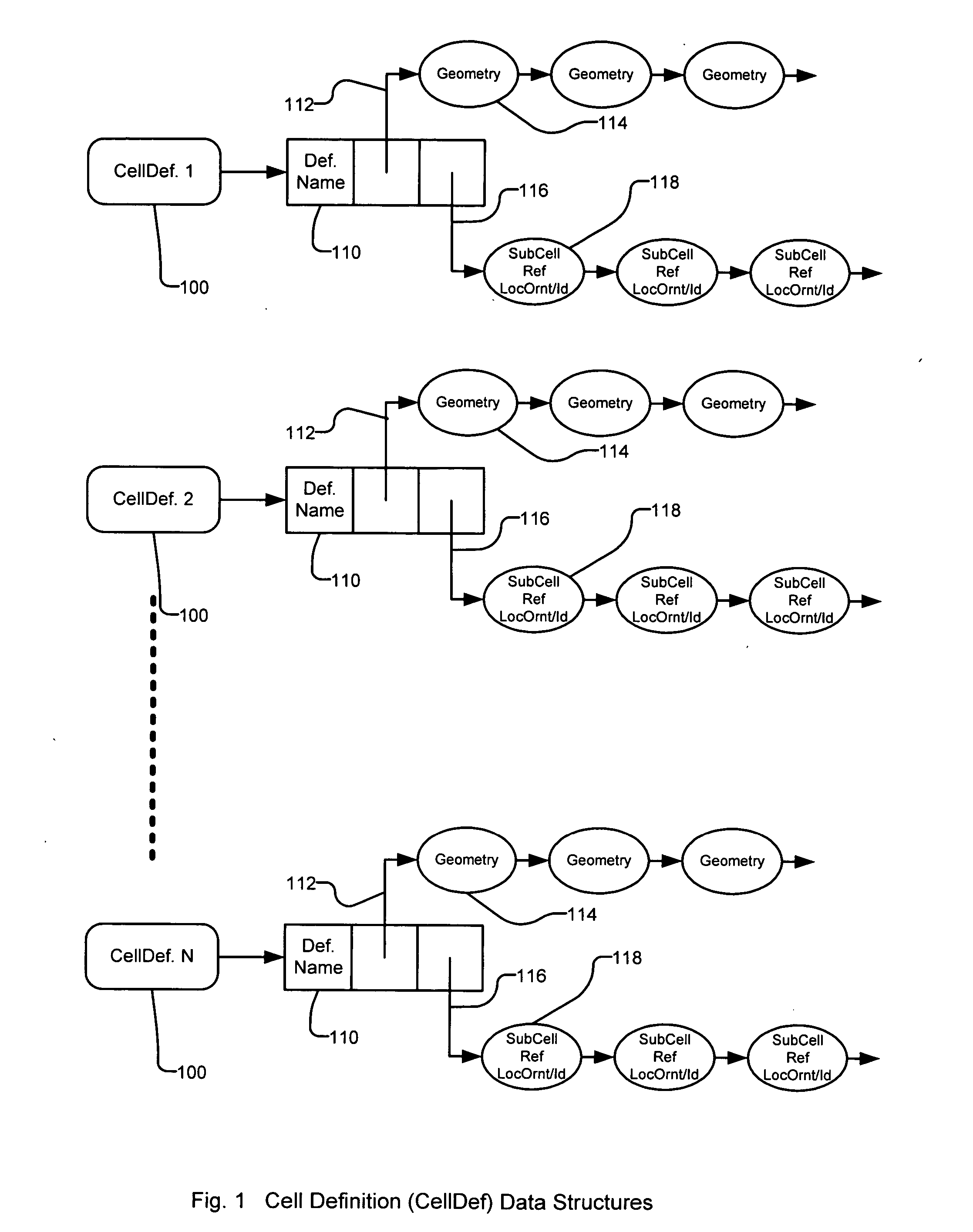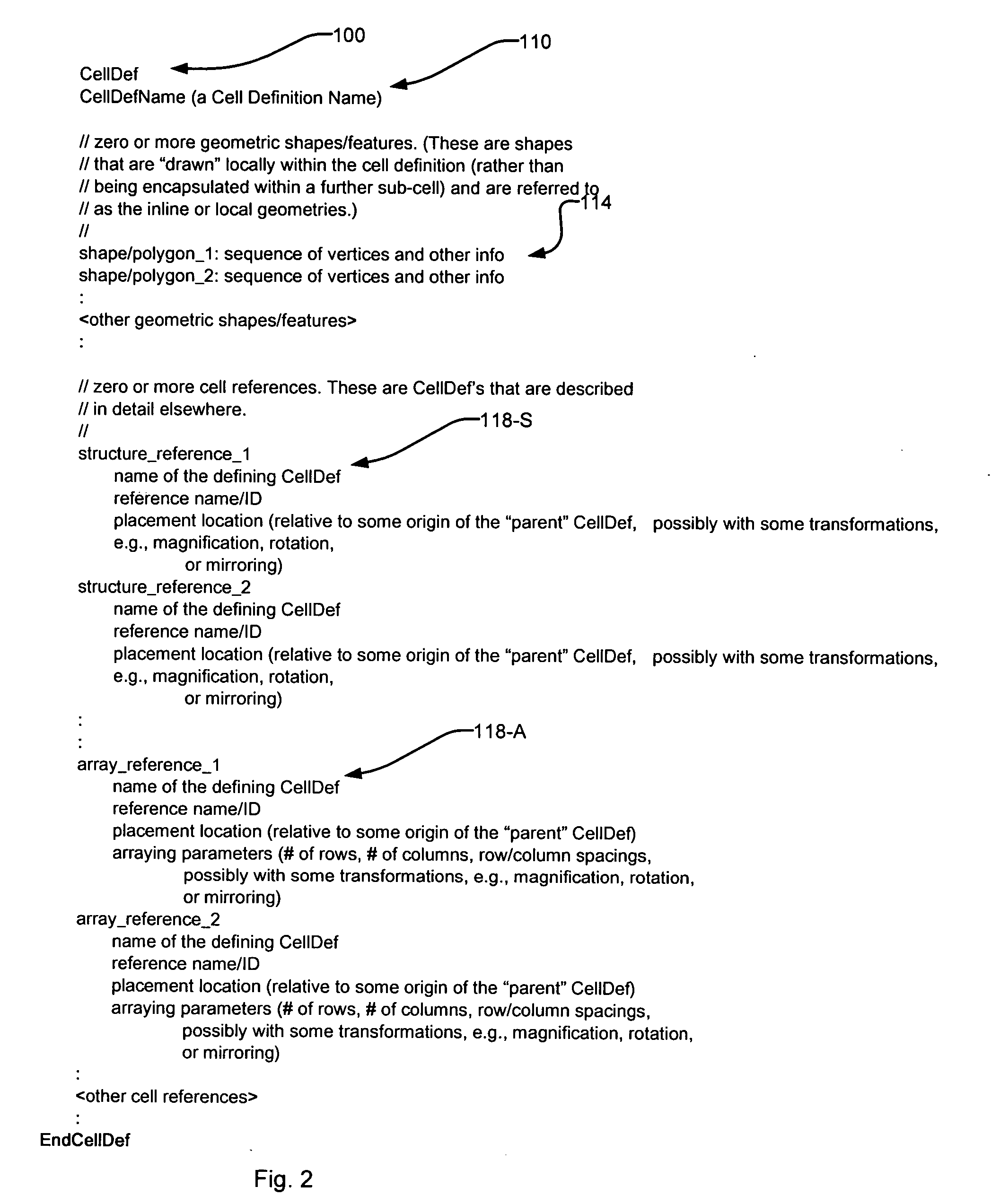Method and system for reticle-wide hierarchy management for representational and computational reuse in integrated circuit layout design
a technology of integrated circuits, applied in the field of method and system for representational and computational reuse in integrated circuit layout design, can solve problems such as failure to take into account distortions caused by other factors, and achieve the effect of saving representational data volume and maximizing reus
- Summary
- Abstract
- Description
- Claims
- Application Information
AI Technical Summary
Benefits of technology
Problems solved by technology
Method used
Image
Examples
Embodiment Construction
[0072] Hierarchical Representation
[0073] A hierarchical representation of a chip layout design comprises primarily a collection of data objects or structures: a set of cell definitions (CellDef's).
[0074]FIG. 1 shows how the cell definitions may look in such a layout design.
[0075] Specifically, the cell definitions are data objects or data structures that describe recurring patterns within the layout design. Each cell definition CellDef1, CellDef2, . . . CellDef N 100 is typically characterized by a name for the cell 110. Further within the cell definition is typically a pointer 112 to the geometry information 114. This geometry information 114 may contain one or more (possibly a very large number of) geometric features (polygons, lines, holes, rectangles, paths, texts . . . , etc.). Such geometric features are called inline geometries of the CellDef. Within the CellDef, sub-cell pointers 116 are also commonly provided. These are pointers to nested sub-cells 118 that may contain f...
PUM
 Login to View More
Login to View More Abstract
Description
Claims
Application Information
 Login to View More
Login to View More - R&D
- Intellectual Property
- Life Sciences
- Materials
- Tech Scout
- Unparalleled Data Quality
- Higher Quality Content
- 60% Fewer Hallucinations
Browse by: Latest US Patents, China's latest patents, Technical Efficacy Thesaurus, Application Domain, Technology Topic, Popular Technical Reports.
© 2025 PatSnap. All rights reserved.Legal|Privacy policy|Modern Slavery Act Transparency Statement|Sitemap|About US| Contact US: help@patsnap.com



